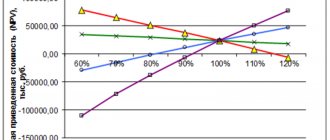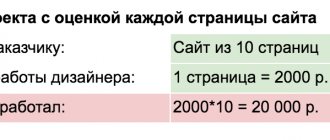When deciding whether to invest, investors are based on several fundamental factors, one of which is the investment climate. Many consider it synonymous with investment attractiveness. However, although these are close, they are not identical concepts.
Climate is a basic characteristic of the investment environment that has formed within a state (for example, Russia), a separate region, a municipality, or a specific sector of the economy. Every knowledgeable investor will not substantively consider any asset without first familiarizing himself with the rating assessment of the investment climate.
Concept of investment climate
One of the most general criteria for making an investment decision is the assessment of the investment climate at the macro level and the investment attractiveness of the investment object.
Often the investment climate and investment attractiveness are treated as synonyms in the economic literature. But the first concept is broader and more capacious. This is a basic characteristic of the investment environment in a country, region, economic region, or industry. Only taking into account the rating assessment of the investment climate is it advisable for an investor to proceed to assessing the investment attractiveness of a specific object or investment project.
What is meant by investment climate?
Numerous authors who address the problem of the investment climate characterize the content of the category under study in very different ways. According to a number of them, the concept of “investment climate” reflects the degree of favorableness of the situation in a particular region in relation to investments that can be made in its socio-economic system. It is often interpreted as “the totality of political, socio-cultural, financial, economic and legal conditions prevailing in any country that determine the quality of business infrastructure, investment efficiency and the degree of possible risks when investing capital.” From this definition it follows that the investment climate can be considered as one of the factors in the external environment of an enterprise that determines the preferences of a potential investor in relation to this enterprise. Thus, the investment climate is defined as a set of economic, political, social and other conditions that create a certain level of attractiveness of financial investments.
There are definitions that interpret this concept more specifically. However, in all cases, investment risks are ignored, which largely determine the investment climate. Therefore, it seems that the most correct and complete definition is given in the Financial and Credit Encyclopedic Dictionary: the investment climate is the set of political, socio-cultural, financial, economic and legal conditions prevailing in any country that determine the quality of business infrastructure and investment efficiency and the degree of possible risks when investing capital. In other words, the balance of investment efficiency and investment risk determines the investment climate.
The essence of the phenomenon
In economic science, several approaches to understanding the phenomenon under consideration have now been formed. Let's look at the main ones.
According to some authors, the investment climate shows how favorable the current situation is for investing in an industry, region or country.
In addition, there is an opinion that the phenomenon under consideration is understood as a set of conditions that have developed in the political, economic, financial, social, cultural and legal sphere of a certain state, its subject or municipality, which determine the attractiveness of investments.
Factors determining the investment climate
Understanding the essence of the category under study and the formation of the author’s view of its content requires an analysis of the factors under the influence of which the investment climate develops. Among the general factors that have the greatest influence on investor preferences and relate to the most significant elements of the investment climate of the region, it is customary in the economic literature to highlight:
- political factors (the authority of local authorities, the stability of legislative and public structures, the distribution of power between various political groups and parties, the state of interethnic relations, the degree of development of the legislative framework, the presence of mechanisms for guaranteeing and protecting investments, legal conditions for investing in certain sectors);
- social factors (social living conditions of the population, level of social tension, presence of social conflicts, level of development of the social sphere);
- economic factors (the most influential) factors (the structure of the regional economy, trends in the economic development of the region, the current level of investment activity, the capacity of the existing local market, the government’s economic policy for the development of invested industries, the possibility of transferring dividends abroad, the level of inflation, the presence of highly efficient investment objects);
- financial factors (the degree of balance of the regional budget and the finances of enterprises, the taxation system, the state of the balance of payments and the profitability of enterprises in the region);
- resource and raw material factors (sufficiency of the region with natural resources);
- labor factors (availability of labor resources and their level of qualifications, professional and educational level of labor resources);
- production factors (features of industry specialization, availability and placement of resources necessary for production);
- innovative factors (level of development of science, level of development and implementation of scientific and technical progress in the region, intellectual and educational level of the population);
- infrastructural factors (territorial-geographical location of the region, infrastructural development, development and security of the region, development of the telecommunications system, availability of investment infrastructure, degree of development of the infrastructure of the market economy);
- environmental factors (level of environmental pollution, natural and climatic conditions in the region);
- criminal factors (corruption of government structures, crime level in the region).
As a rule, investment climate factors are classified according to the possibility of society influencing them: objective and subjective. The first factors are very diverse. The second are related to human activity. At the same time, we can highlight points that have a positive and negative impact on the investment climate. Circumstances contributing to the creation of a favorable investment climate and increased investment activity in the country include:
- high potential of the domestic market;
- high rate of profit;
- low level of competition;
- stable tax system;
- low cost of resources (raw materials, labor, financial);
- effective state support.
Factors that hinder the development of investment processes and thereby worsen the investment climate in the country include:
- political instability;
- social tension (strikes, mafia wars, ethnic and religious strife, etc.);
- high level of inflation;
- high refinancing rates;
- high level of external and internal debt;
- budget deficit;
- passive balance of the balance of payments;
- underdevelopment of legislation, including failure to comply with laws regulating the investment sector;
- high transaction costs.
Consequently, the investment climate can be considered in terms of a combination of political, socio-economic, financial, organizational, legal and geographical factors that attract or repel potential investors.
Institutes for promoting the investment process
In order to improve the investment climate in the Russian Federation, the following institutions have been created:
- Russian Direct Investment Fund;
- Institute of the Federal Investment Ombudsman (investment ombudsman);
- Agency for Strategic Initiatives;
- Export Credit and Investment Insurance Agency
- Foreign Investment Advisory Council
Almost every region of Russia has created a council to improve the investment climate.
Advice! Investors should not be afraid to seek help from government institutions supporting investment activities, since they can advise on the correct algorithms of action.
Investment climate assessment
It is extremely difficult to accurately quantify the investment climate. It is usually assessed as:
- favorable;
- adverse;
- neutral.
Investment climate assessment serves as a tool for optimizing investment flows and is therefore widespread throughout the world. It is carried out by consulting firms, banks, newspapers, magazines, government agencies (in the USA, for example, the Department of Commerce), insurance companies, and pension funds.
The investment climate is based on investment attractiveness, which is understood as the presence of certain conditions that influence the investor to choose a particular investment object. These conditions include:
- investment potential – a quantitative characteristic of investment attractiveness;
- investment risk – a qualitative assessment of investment attractiveness.
The object of investment climate research is countries, regions within them, industries and cities. There are many methods for assessing the investment climate, but the methods used are different. Some countries, such as Japan, use descriptive methods without any quantitative assessment. But the most common methods are those in which economic indicators are expressed in numerical values.
Given the significant economic and political differences between individual countries, identifying clear advantages in certain aspects of the functioning of national economies is often very difficult. For countries with transition economies (including Russia), the Bury index method is often used. The assessment is carried out according to 15 criteria, the weight of which is measured as a percentage:
- Political stability – 12.
- Economic growth rate – 10.
- Currency convertibility, etc. - 10.
- Possibility of long-term lending and conditions for a foreign investor to contribute his share in the capital – 8.
- Possibility of short-term lending – 8.
- Costs for wages and labor productivity – 8.
- Devaluation – 6.
- Balance of payments status – 6.
- Possibility of implementing the contract – 6.
- Attitude towards foreign investment and profit – 6.
- Possibility of nationalization: from expropriation to advantages of residents – 6.
- Bureaucratic procedures (degree of government regulation) – 4.
- Local governance and partnership – 4.
- Organization of transport and communications – 4.
- Possibility of using experts and services – 2.
Each criterion is scored from one (unacceptable) to four (very favorable). The Bury index is a synthetic indicator representing the sum of points of expert assessments of individual components (criteria). The method is largely subject to subjective opinions, especially when it comes to assessing risks, especially political ones.
A significant role in assessing the investment climate is played by ratings assigned by various national and international agencies. The largest and most famous rating agencies are the American (they were first created in the USA) Moody's Investors, Standard & Poor's, Fitsch - IBCA. These agencies have representative offices in dozens of countries around the world and operate according to the same standards for all countries, using the same assessment methods and rating scales. This, on the one hand, is a positive thing; but on the other hand, ratings focused on international financial markets do not take into account national and regional specifics. It is important to note that data from rating agencies are not able to fully reflect the investment climate, since they do not fully reveal the complex economic system of the country. However, they serve as an auxiliary tool for the investor’s decision-making when choosing an investment object.
When assigning a rating, international agencies are forced to maintain a balance of interests of numerous investor and recipient countries, which contributes to the emergence of conflicts of interest given the complexity of assessing country risk. It is even believed that the global economic crisis, which began in 2008 and affected all countries of the world, was provoked by rating agencies that gave incorrect assessments of the financial well-being of US companies and banks. Now agencies, along with fundamental parameters, base their conclusions, including on the point of view of financial authorities and public opinion. Although, in principle, they themselves must form them. As a result, the quality of the findings deteriorates.
At the G20 summit, dedicated to the problems of the global financial crisis, it was noted that the existing global system of financial analysis will be revised and others will replace the agencies that failed. Russia has proposed creating a new international rating agency. Its founders can be the states participating in the meeting. The goal of agencies should not be making a profit, but a reliable assessment of economic processes and the financial condition of companies.
Experience in improving the investment climate abroad
On the world market, the demand for free investment resources significantly exceeds supply, so states strive to create the most favorable conditions for attracting domestic and foreign investment. Thus, in many countries, the tax system provides a number of benefits for investors: collection of taxes from the profits of enterprises at a reduced rate, differentiation of tax benefits depending on the size of investments, reduction of tax rates depending on the area of capital investment, exemption of enterprises with foreign investment from taxes in the first place. years of their activity, reduction of tax rates and other tax benefits in special free economic zones.
In Austria, corporate tax (profit) is 30%, industrial tax – 13-14%. If an Austrian company has investments from a foreign company, it is exempt from income taxes, subject to conditions favorable to foreign and domestic investors. In Malaysia, corporate tax is the same for everyone at 35%, other taxes are low or non-existent. Investments in a “pioneer” industry (such industries include almost every production) are tax-free for 5 years. In the USA, the investment tax credit, which provides for a reduction in taxable profit by the amount of investments used to purchase machinery and equipment, is of great stimulating importance for accelerating the renewal of production equipment and fixed assets.
In world practice, it is common to regulate investment flows through determining priority areas for their attraction. Thus, in Vietnam, investments are encouraged to implement government economic programs, investments in advanced technology and qualified labor, to intensify production, and increase the capacity of industrial enterprises. In Germany, for the development of the economy of backward areas, the following are provided:
- preferential investment loans, i.e. special investment loans for the creation of high-tech industries;
- regional loans under the European Recovery Programme;
- subsidies in accordance with land industrial development programs;
- subsidies in accordance with structural programs for the development of medium-sized cities, etc.
The activation of investment processes is facilitated by liberal depreciation legislation, in particular the use of accelerated depreciation methods, which have long been in effect in the USA, Great Britain, Germany, Japan, France, Sweden, Switzerland and other countries. The high rate of retirement of fixed capital in these countries in the 90s. XX century indicates the intensive nature of reproductive production.
In world practice, leasing plays an important role as a form of long-term lease with the right to purchase fixed assets acquired by the lessor for the lessee for the purpose of their production use. The share of expenses for leasing operations in total capital investments is 30% in the USA, 13-17% in England, France, Sweden, Spain, 12-14% in Italy, Holland, 8-10% in Austria, Denmark, Norway. .
In industrialized countries, great importance is attached to the development and implementation of effective state innovation policies. According to the British Manpower Commission, 15% of the increase in the overall efficiency of American and Japanese industry is a consequence of changes in the nature of the use of labor, 25% - of capital investment and 60% - of changes in technology.
Directions for creating a favorable investment climate in Russia
Among the measures aimed at creating a favorable investment climate in the Russian Federation, we can highlight:
- development of public-private partnerships that can significantly increase the efficiency of investment projects by taking advantage of public and private investments;
- improvement of the regulatory framework for investment activities;
- formation of infrastructure in the investment sphere;
- development of a long-term lending system;
- development of small business.
Specific measures in this direction should include:
- Introducing changes or repealing various legislative acts that make it difficult to conduct business and investment activities.
- Reducing the influence of state-owned companies on the investment climate through the privatization of large blocks of federally owned shares and the exclusion of heads of federal executive bodies from the board of directors of joint-stock companies with state participation and the inclusion of independent directors in their place.
- Tightening control over corruption offenses.
The essence
The concept of investment climate combines a whole system of factors that determine the business attractiveness of a particular country or its territory. Without taking into account the specifics of the investment climate, it is impossible to calculate the possible risks and expected profitability of the project.
A favorable investment climate is a relative concept, since it is assessed subjectively by potential investors. For example, for one highly developed state, the investment environment of a less progressive state will be assessed as unattractive and risky.
When assessing the business climate of the state of the recipient of investments, the investor will pay attention to the feasibility of implementing a specific project. For example, in a country with a developed agricultural sector, financing farms will be justified.
The main characteristics of a favorable investment climate can be considered:
- a transparent and justified legislative framework in the field of investment;
- guarantees provided by the state to non-resident investors;
- tax benefits;
- stable operation of financial and credit institutions;
- stable political situation;
- absence of corruption and bureaucracy.
Conclusion
Thus, the investment climate is a complex and multi-level concept. The complexity lies in the fact that it is formed, as shown above, under the influence of many factors that create the conditions for investment activity. The multi-level nature of the investment climate means its assessment at the levels of the country, regions, and sectors of the economy. But if the rating of a country is of fundamental importance for a foreign investor, then the rating of a region or industry is important for both foreign and domestic investors. Taking this into account, the investor chooses an investment object, assessing its investment attractiveness. The approach to evaluating an investment object differs depending on whether it is new or already existing. But in all cases, it is important for the investor (as when assessing the investment climate) to assess the effectiveness and risks of investing. Only the approaches to solving these problems are different.
Optimization methods
For all levels of government in Russia, improving the investment climate within the country should be a priority. One of the key problems of Russian business is the unproductive use of resource potential characteristic of the state.
It is extremely important to develop effective and tough measures to combat corruption. To achieve this, it is necessary to focus on improving the functioning of the judicial system. First of all, the courts must be politically independent, which will guarantee the formation of their objective attitude to controversial situations that have arisen in economic relations.
To improve the business environment, it is necessary to reduce the level of bureaucracy that characterizes the peculiarities of non-residents crossing the Russian border.
The problem of investment activity in Russia is considered to be insufficiently transparent legislation. Particular attention must be paid to insuring investors' risks related to loss of property and capital. The antimonopoly and anti-corruption legislation of Russia also requires improvement.
If the above reforms are fully implemented, the investment climate in Russia will be improved over the next few years.











